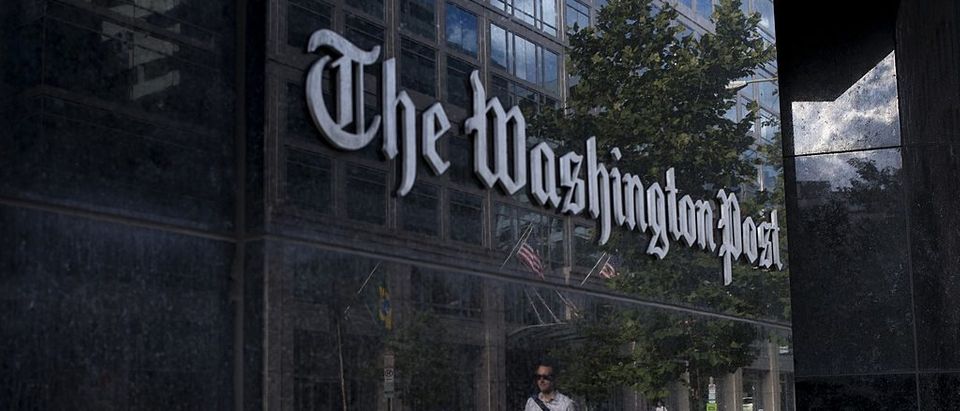The Washington Post said a key part of its big story exposing “fake news” sites might not be credible Wednesday, writing in an editor’s note that the paper can’t “vouch for the validity” of a report heavily cited in the story.
“The post, which did not name any of the sites, does not itself vouch for the validity of PropOrNot’s findings regarding any individual media outlet, nor did the article purport to do so,” the note now running at the top of the story reads.
PropOrNot is an anonymous group that compiled a list of hundreds of sites they deemed “routine peddlers” of Russian propagandists, as part of a report on the Russian’s influence during the 2016 presidential election cycle. The Washington Post used PropOrNot’s report prominently in its own story on how Russian propagandists created and leveraged fake news during the cycle.
One of the sites listed in PropOrNot’s report as “fake news” quickly demanded a retraction of the story and threatened to sue The Washington Post for defamation in a letter published Monday.
“You have made damaging false accusations against Naked Capitalism,” the site’s lawyer wrote in the letter. “Please immediately remove these from the web and provide an equivalent opportunity to respond.”
A few days later, The Washington Post added the editor’s note attempting to distance itself from the report.
Here’s the full note:
Editor’s Note: The Washington Post on Nov. 24 published a story on the work of four sets of researchers who have examined what they say are Russian propaganda efforts to undermine American democracy and interests. One of them was PropOrNot, a group that insists on public anonymity, which issued a report identifying more than 200 websites that, in its view, wittingly or unwittingly published or echoed Russian propaganda. A number of those sites have objected to being included on PropOrNot’s list, and some of the sites, as well as others not on the list, have publicly challenged the group’s methodology and conclusions. The Post, which did not name any of the sites, does not itself vouch for the validity of PropOrNot’s findings regarding any individual media outlet, nor did the article purport to do so. Since publication of The Post’s story, PropOrNot has removed some sites from its list.
In addition to the lawsuit threat, other mainstream news outlets criticized the piece on several fronts.
“The organization’s anonymity, which a spokesperson maintained was due to fear of Russian hackers, added a cybersexy mystique,” Adrian Chen wrote in The New Yorker, referring to PropOrNot’s report cited in the story. “But a close look at the report showed that it was a mess.”
Patrick Maines criticized the story in The Hill, calling it “perhaps the shoddiest piece of feature writing since Rolling Stone published its blatantly false story about a campus rape at the University of Virginia.”
“You did not provide even a single example of ‘fake news’ allegedly distributed or promoted by Naked Capitalism or indeed any of the 200 sites on the PropOrNot blacklist,” Naked Capitalism’s lawyer added in the letter. “You provided no discussion or assessment of the credentials or backgrounds of these so-called ‘researchers’ (Clint Watts, Andrew Weisburd, and J.M. Berger and the ‘team’ at PropOrNot), and no discussion or analysis of the methodology, protocol or algorithms such ‘researchers’ may or may not have followed.”
Send tips to rachel@
All content created by the Daily Caller News Foundation, an independent and nonpartisan newswire service, is available without charge to any legitimate news publisher that can provide a large audience. All republished articles must include our logo, our reporter’s byline and their DCNF affiliation. For any questions about our guidelines or partnering with us, please contact licensing@dailycallernewsfoundation.org.


